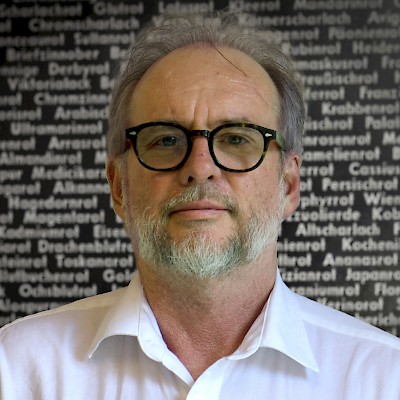Paul Turnbull is a cultural historian who is the University of Tasmania’s foundation chair in digital humanities. He is also an honorary professor of history at the University of Queensland.
Paul gained his PhD in 1985 from James Cook University. Until the late 1990s, his research focused on aspects of European Enlightenment historiography. Over the past twenty years he has focused on investigating and writing about the history of scientific uses of the bodily remains of Pacific and Australian Indigenous peoples during the nineteenth and early twentieth centuries. He also has ongoing research interests in the cultural and political dimensions of Indigenous peoples repatriating their ancestral dead from European scientific collections.
Paul has regularly been a consultant researcher for national and local Indigenous Australian representative organisations. In 2004, he was awarded a Fulbright Senior Fellowship on the basis of his research on using digital technologies to provide access to Indigenous traditional knowledge in colonial archives.
The Lives of the Indigenous Dead
My research project centres on the bodily remains of the indigenous peoples of Australia, Southern Africa, Arctic North America and Tierra del Fuego, and how these remains were given new ›life histories‹ by nineteenth and early twentieth century anatomists and physical anthropologists. To date, scholars have drawn attention to how comparative analyses of indigenous skeletal remains and fossilised bones discovered in various parts of Europe gave pernicious credence to the idea that indigenous people were ›living fossils.‹ My interest is in how the bones of the indigenous dead inspired life-histories also proved to be an influential resource by which late nineteenth and early twentieth century Europeans imaginatively reconstructed the everyday lives of peoples they presumed were their racial ancestors in the continent’s deep past. It has been commonly argued that the fate of the bones of the indigenous dead that were obtained by Europeans museums and medical schools was to be transformed into objects that were devoid of human attributes and qualities. My aim in this project is to show that, on the contrary, these bones could have a substantial sensory presence. The indigenous dead were capable of eliciting desire for complex, affective communion with the people whose relics they were, and the world in which they lived in before colonialism. Indeed, they could also inspire empathetic imaginings of the lives of indigenous peoples, which in turn proved a fertile resource for Europeans’ imaginings of their own deep past as expressed in popular scientific discourse and visual imagery. As I will shown through comparative study of nineteenth and early twentieth century scientists, popular science writers and visual artists, the lives of the indigenous dead proved a source of curiosity and inspiration in the growing fascination of later nineteenth century European elites with the supposed racial origins of their nationality in the continent’s deep past. I also hope in this project to encouraging dialogue between scholars in the humanities and scientists on the uses of life narratives in contemporary anthropometric and genetic analyses of human bodily remains.
